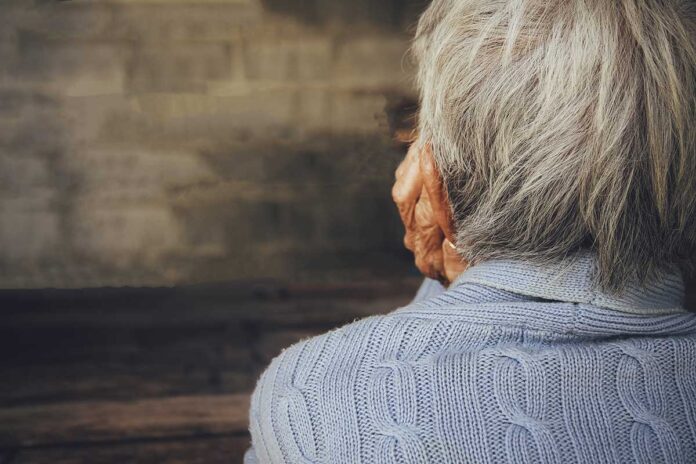Elder abuse is a public health crisis. Although individuals of all ages can be survivors, LGBTQ+ older adults encounter unique experiences with abuse — including risk factors and barriers to reporting. Not only does the aging process come with specific vulnerabilities, but being a member of a gender and/or sexual minority group can present compounding challenges.
It’s important to first ask: What is elder abuse? The National Adult Protective Services Association broadly defines it as “a form of mistreatment by one individual that causes harm to another person.” There are several types of elder abuse, including physical, financial, cultural, sexual, verbal, or psychological abuse. It can involve neglect, abandonment, or isolation. It can also come from a variety of places: caregivers, long-term care facilities, partners, neighbors, senior centers, healthcare staff, family, and more.
Although more research is needed specifically on abuse against LGBTQ+ elders, some studies have tried to identify statistics. Research published in the Journal of Interpersonal Violence reported that 65% of LGBTQ+ elders surveyed had endured abuse due to sexual orientation. Another 2014 study in the Journal of Homosexuality shared that over 20% of LGBTQ+ older adults experienced abuse or neglect by caregivers. Additionally, a study in the Journal of GLBT Family Studies shared that a “strong majority” of transgender elders surveyed had experienced sexual violence and elder abuse. One thing is clear: Abuse is a hidden issue impacting many LGBTQ+ older adults today.
According to the National Center on Elder Abuse (“NCEA”), one place that many LGBTQ+ elders fear abuse and discrimination is in the long-term care system, including in nursing homes and assisted living facilities. A study by AARP reported that over 60% of LGBTQ+ older adults experience this fear. Unfortunately, these feelings aren’t unfounded. NCEA reports that LGBTQ+ older adults have been denied visitors or barred from sharing rooms with their same-sex partners. Others have been prohibited from making medical decisions for partners, forbidden from dressing according to their gender identity, or forcibly assigned to rooms that don’t match their gender altogether.
Since many LGBTQ+ elders have lived through decades of discrimination and stigmatization due to their gender and sexual identities, it’s no surprise that this translates to a deep distrust of institutions later in life. Older adults who have unjustly undergone practices such as electroshock therapy, forced hospitalization, targeted police raids, and more are understandably hesitant to report their abuse to law enforcement, medical professionals, or social services agencies. In addition to this pervasive mistrust, there are a variety of other barriers to survivors reporting, including stigma, feelings of shame, a desire to hide one’s identity, legal discrimination, risks related to abandonment by their loved ones, or threats they’ll be “outed.”
Since there are many unique barriers faced by older LGBTQ+ survivors, it’s especially crucial to know the main signs of abuse. Common signs that an older adult is experiencing abuse include: bruising, welts, cuts, burns, broken bones, or other wounds; a sudden inability to meet essential needs that threaten their health or safety; sudden isolation or withdrawal from loved ones; appearing malnourished, dehydrated, or confused; and more.
If you or someone you know is experiencing elder abuse, know that you are not alone and there are many ways to seek help.
The Pennsylvania Department of Aging has a 24-hour hotline to report elder abuse at 1-800-490-8505. Reports can be completely anonymous, and reporters are legally protected from retaliation and discrimination.
If you are currently experiencing abuse from a partner, you can also contact the National Domestic Violence Hotline at 1-800-799-7233.
If you are a resident of a long-term care facility and need an advocate, you can contact Pennsylvania’s Long-Term Care Ombudsman program at 717-783-8975 or [email protected].
If your health and safety are in immediate danger, call 9-1-1.
The Senior Law Center (www.seniorlawcenter.org) offers free legal representation and advice to older adults in abusive situations, as well as assists with obtaining Protection from Abuse (“PFA”) orders. Residents of Philadelphia can contact them at 215-988-1242, while other Pennsylvania residents can contact 1-877-727-7529.
The Center for Advocacy for the Rights and Interests of the Elder (CARIE, www.carie.org) can be reached at 215-545-5728 and may assist in a variety of ways, including: Issuing referrals to domestic violence agencies, offering counseling or support groups, changing locks in homes, providing transportation or accompaniment to court, and more.
Elders are the pride of the LGBTQ+ community. Safety is not only paramount for every person to live freely — it’s necessary to age successfully.
Mel Kulenski is a social work intern at the LGBT Elder Initiative @ William Way Community Center and an MSW student at Aurora University. She previously received her BSW from the University of Valley Forge and has experience working in various nonprofit organizations serving LGBTQ+ communities and older adults. In addition to leading workshops in numerous settings on LGBTQ+ equity and inclusion, Mel has written for Our Bible App, the Medium publication Prism & Pen, and has been published in the book, The Deconstructionist’s Playbook.
